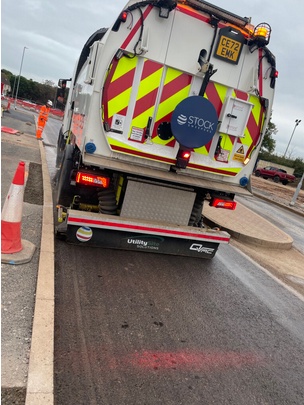Introduction
Gully suckers, or gully emptying vehicles, are the unsung heroes of urban sanitation. While they may not grab the spotlight, the individuals who operate these machines play a crucial role in maintaining clean and functional drainage systems in cities around the world. In this discussion, we delve into the world of gully sucker operators, shedding light on their experiences, challenges, and the vital perspectives they bring to the realm of urban sanitation.
The Unsung Heroes of Sanitation: Gully Sucker Operators
Gully sucker operators are the frontline workers who navigate the bustling streets of cities, often in the early hours of the morning or late at night when the traffic is minimal. Their mission: to keep the drainage systems clear and prevent flooding during heavy rains. These operators perform tasks that are essential for public health and the smooth functioning of urban areas, yet their work often goes unnoticed.
The Role of Gully Sucker Operators
The primary responsibility of gully sucker operators is to operate the specialized vehicles designed to remove waste, debris, and silt from gullies, stormwater drains, and sewage systems. This task may sound straightforward, but it involves a complex set of skills and a deep understanding of the drainage infrastructure.
Operators use powerful suction equipment to extract waste from gullies and transport it to designated disposal sites. They also employ high-pressure water jetting systems to clean the drainage systems thoroughly, dislodging stubborn debris and ensuring that the gullies remain free from blockages. This proactive approach not only prevents flooding but also reduces the risk of waterborne diseases and environmental contamination.
Challenges Faced by Gully Sucker Operators
While their work is vital, gully sucker operators face numerous challenges that often go unnoticed by the public. Here are some of the key issues they encounter:
-
Long and Unpredictable Hours: Gully sucker operators often work irregular hours, responding to emergency calls and addressing drainage issues as they arise. This unpredictability can disrupt their work-life balance and lead to fatigue.
-
Safety Risks: Working on busy streets, operators are exposed to traffic hazards and other safety risks. Proper safety measures, such as high-visibility clothing and safety barriers, are crucial but not always sufficient to eliminate these dangers.
-
Environmental Conditions: Gully emptying is a dirty job. Operators work in close proximity to waste materials, which can pose health risks. Additionally, extreme weather conditions, such as heavy rain or scorching heat, can make the job even more challenging.
-
Equipment Maintenance: Gully sucker vehicles are complex machines that require regular maintenance. Breakdowns can disrupt operations, and repairing specialized equipment can be time-consuming and costly.
-
Public Perception: Gully sucker operators often contend with the negative perceptions associated with their work. Some people view them as a nuisance or an inconvenience when they block roads temporarily for cleaning operations. Changing these perceptions and garnering public appreciation can be a challenge.
The Importance of Operators' Perspectives
Understanding the challenges and experiences of gully sucker operators is essential for several reasons:
-
Operational Efficiency: Operators' insights can lead to improved operational efficiency. They are on the frontlines, dealing with the realities of drainage systems daily. Their feedback can inform decisions about equipment upgrades, maintenance schedules, and route optimization.
-
Safety Enhancements: The safety of gully sucker operators should be a top priority. Hearing their perspectives can help identify safety hazards and improve safety protocols and equipment.
-
Public Engagement: Operators can serve as ambassadors for urban sanitation. When their work is better understood and appreciated by the public, it can lead to a more positive image of sanitation services.
-
Innovation and Technology: Operators' feedback can drive innovation in gully sucker technology. Their experiences in the field can inform the development of safer, more efficient, and environmentally friendly equipment.
Conclusion
Gully sucker operators are the unsung heroes of urban sanitation, working tirelessly to keep our cities clean and functional. Their role is challenging, often requiring them to work long hours in demanding conditions. They face safety risks, equipment maintenance issues, and the challenge of changing public perceptions about their work.
Despite these challenges, the perspectives of gully sucker operators are invaluable. They provide critical insights into the operational efficiency, safety enhancements, and public engagement necessary for effective urban sanitation. By listening to and appreciating the experiences of these dedicated individuals, we can better support them in their vital mission and ensure that our cities remain clean and flood-free.


No comments yet